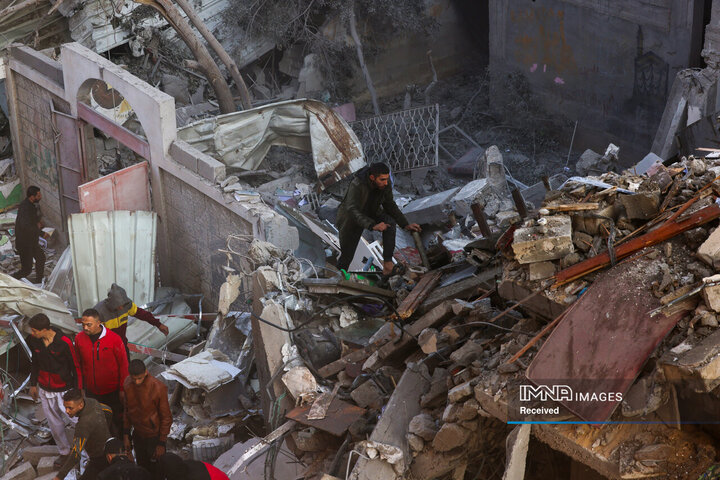Iran (IMNA) - Hastings highlighted the lack of necessary conditions required for aid delivery to the people of Gaza, rendering it impossible to provide essential assistance. Adding to the complexity, two major roads in Gaza have been declared off-limits to UN teams and trucks, further hindering relief efforts.
Since the expiration of the 7-day truce on Friday, the Israeli military's actions have resulted in tens of thousands of individuals being confined to increasingly cramped spaces in southern Gaza. This has left them desperate for basic necessities such as food, water, shelter, and safety.
The humanitarian crisis in Gaza continues to escalate, demanding immediate attention and action from the international community.
In the ongoing conflict that started almost two months ago, the Israeli regime has issued orders for the compulsory displacement of Palestinians to the southern region of Gaza, asserting that it is a safe area. However, following the violation of the ceasefire, Israel has now labeled the southern city of Khan Yunis as a "dangerous combat zone," urging residents to relocate to the border city of Rafah or seek shelter in the southwest coastal region.
According to Hastings, an expert on the matter, an even more dire situation is likely to unfold, where humanitarian aid efforts may be severely hindered. She strongly criticized the notion of "safe zones" proposed by the US government, highlighting that the people in Gaza are still unable to freely move around. She emphasized that there is no safe haven left in Gaza, leaving the population with nowhere else to seek refuge.
The UN Relief and Works Agency for Palestine Refugees in the Near East (UNRWA) has reported that since October 7, Israel's relentless bombardment has led to the internal displacement of over 1.9 million people in Gaza. This accounts for more than 80 percent of the population.
In a statement released on Monday, UNRWA highlighted that Israeli airstrikes continue to persist, even in areas where residents are being forced to flee, such as the border city of Rafah. UNRWA spokesperson Hasting expressed grave concern, stating that the current situation in Gaza poses a significant risk for epidemics and a potential public health disaster. He further emphasized the dire conditions, including overcrowded shelters, a strained healthcare system, limited access to clean drinking water, inadequate sanitation facilities, and insufficient nutrition for individuals who are already mentally and physically exhausted.


Your Comment